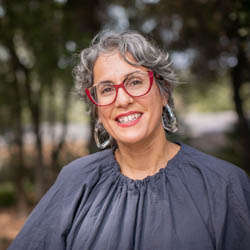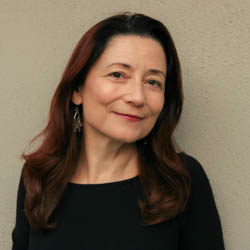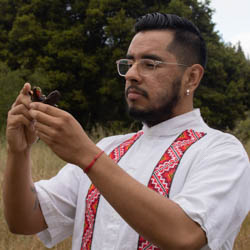Campus News
‘Crossing Latinidades’ program selects UC Santa Cruz faculty and graduate students for national research and mentoring collaboration
Two UC Santa Cruz faculty were awarded $310,000 grants to lead national research working groups, and two doctoral students have been selected for one-year research fellowships and a summer institute focused on interdisciplinary research methods.




Two UC Santa Cruz faculty were recently awarded $310,000 grants to lead research working groups through the Crossing Latinidades project, a nationwide consortium of R1 designated Hispanic-Serving Institutions (HSI) funded by The Andrew W. Mellon Foundation. Ten working groups in total were funded, for two years each, among the consortium’s 16 member institutions.
Latin American and Latino Studies (LALS) Department Chair Catherine Ramírez will lead one of the groups, which will include two other senior scholars and several graduate student fellows from Crossing Latinidades partner universities. The research team will explore the theme of “bioprecarity,” or the physical experiences of vulnerability and risk among Latinx immigrants in the United States. Specifically, the team will focus on medical abuse and neglect in immigrant detention facilities, captivity in the borderlands, and how the processes of youth and aging interact with U.S. immigration policy.
“Bioprecarity is essentially embodied vulnerability, and the body is an important site for concretizing the concept of precarity, which is otherwise pretty abstract,” Ramírez explained. “For example, this country has a need for young workers, but once they get older or are no longer considered productive, what happens to them, especially if their immigration status is precarious? I want to study youth as a resource that has been extracted from immigrants as they’ve waited for immigration reform.”
Another research group, led by UCSC Professor of Literature Kirsten Silva Gruesz, will focus on the theme of the Latinx past, combining archival research methods with literary and historical analysis. The group will include three lead faculty researchers, three additional collaborating faculty, and graduate students from Crossing Latinidades member institutions. The research team will visit archives across the country with collections focused on a variety of Latinx ethno-national identities. These materials will offer a starting point for speculations about the past, present, and future that may enter into the realm of creative writing.
“We are not primarily a group of historians, so we are not as focused on trying to ascertain what actually happened as we are on the bigger question of memory itself,” she said. “How does the nation either remember or fail to remember the places and moments where Latinx people have entered the national story? That’s where the work that creative writers are doing has been so powerful.”
Two doctoral students from UCSC’s Latin American and Latino Studies Department have also been selected to join Crossing Latinidades national research working groups through a one-year fellowship program. Mario Gomez-Zamora’s research focuses on queer Indigenous P’urhépecha histories and colonial violence in Michoacán, Mexico. And Jennifer Figueroa studies how Latino parents in Ventura County have organized for equity in education.
“I’m looking forward to hearing from other scholars and scholars-in-the-making who are asking similar questions about how we can expand our thinking on educational issues for Latinx people in the U.S. from an asset-based perspective,” Figueroa said. “My research is going to be infinitely enriched by having this dedicated time together to think about these issues.”
Figueroa and Gomez-Zamora will also attend a Crossing Latinidades summer institute focused on interdisciplinary research methods and will participate in a mentorship program. Both are looking forward to the opportunity to build their skills and expand their networks. Ultimately, one of the goals of the Crossing Latinidades consortium is to increase the number of Latinx students pursuing terminal degrees and advancing to academic positions.
“I think this program will really help to prepare me for a potential academic job, but also to better contribute to my community,” Gomez-Zamora said. “I’m a first-generation college student and an immigrant, and after generations where my parents and grandparents were not able to get higher education, I want to show what we can do. I have a chance to pursue a different dream of collaborating with my community to create knowledge together.”